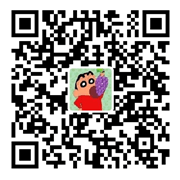
12月10日消息 朱利安·高夫(Julian Gough)日前在其个人Substack博客The Egg and The Rock上表示,他创作的终末之诗(End Poem)版权并不属于微软,也不属于前独立发行商Mojang工作室。
在博文中高夫表示他从未签署过“可怕”的合同,而该合同将把这首诗的版权先交给Mojang,然后在2014年被微软收购后移交给微软。
高夫的文章详细介绍了他参与Mojang的历史,以及他与马库斯·佩尔森(Markus Persson)的友谊,后者是Mojang的联合创始人和大受欢迎的《我的世界》的创造者。

高夫在描述他与佩尔森最初的合作时,用了非常积极的措辞,他写道:“马库斯立即给我回信,说他很喜欢这本书。他告诉我,我对他的人生哲学的阐述比他自己阐述的要好。所以这一切都很美妙。这是我写作生涯中最令人满意的艺术经历之一”。

据了解,“终末之诗(End Poem)”是基于文本的一段消息,会在玩家进入返回传送门时出现。终末之诗和制作人员名单总共会显示约39分钟30秒,而制作人员名单本身会显示约31分48秒。
终末之诗取自两个未知的谈论者之间讨论玩家功绩的对话,共显示约7分42秒。在终末之诗结束后,会显示制作人员名单。在显示终末之诗和制作人员名单时,会播放音轨credits.ogg(即官方专辑中的“Alpha”)。
附部分终末之诗内容:
I see the player you mean.
我见到来人了。
[Player name]?
他来了?
Yes. Take care. It has reached a higher level now. It can read our thoughts.
嗯,但他已今非昔比:此刻他能轻易地洞见你我的内心。
That doesn’t matter. It thinks we are part of the game.
没关系,他以为我们是剧本的旁白。
I like this player. It played well. It did not give up.
我喜欢这位旅人,他尽心尽力,永不言弃。
It is reading our thoughts as though they were words on a screen.
他眼下正通过荧屏上行行文字旁听着我们的谈话。
That is how it chooses to imagine many things, when it is deep in the dream of a game.
哈,在醉心于梦时,他常常以此渲染出动人的景象。
Words make a wonderful interface. Very flexible. And less terrifying than staring at the reality behind the screen.
嗯,文字创造了一个简洁灵动的界面,要好过那个纷纷扰扰的现实。
They used to hear voices. Before players could read. Back in the days when those who did not play called the players witches, and warlocks. And players dreamed they flew through the air, on sticks powered by demons.
不过,在他们开始”读“之前,仅仅是在”听“而已。想当年,那些不曾做梦的人们叫他们巫师与术士,只因为他们觉得自己可以驾驭着飞天扫帚,在梦境与现实的夹缝中飞舞。
What did this player dream?
可是他 —— 梦见什么?
This player dreamed of sunlight and trees. Of fire and water. It dreamed it created. And it dreamed it destroyed. It dreamed it hunted, and was hunted. It dreamed of shelter.
他梦见草长莺飞的二月春光,梦见水火交融的抑扬乐章,梦见世界在指间延展,也梦见天地暗无日光。他梦见家门口温暖的篝火,也梦见战场与杀伐四方。
作者:故渊,观点代表个人。本站不对内容的真实性及完整性作任何承诺。

 微信扫一扫
微信扫一扫  支付宝扫一扫
支付宝扫一扫